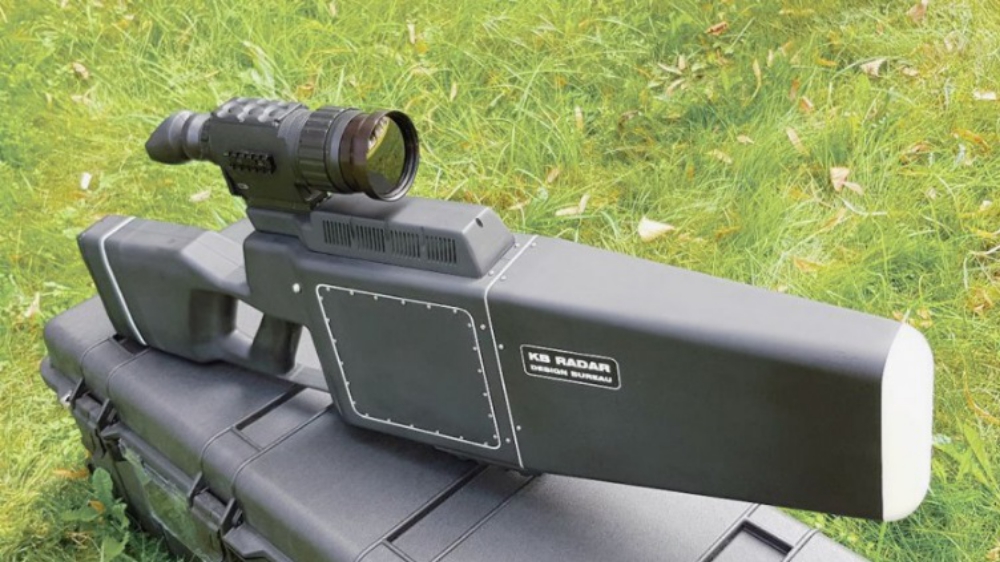Belarus-based defence industrial group KB Radar has announced the development of the Groza-P2 mobile counter unmanned aerial vehicles (C-UAVs) jammer.
The system, which will be showcased at the defence technology expo MILEX 2019 in Minsk in May, is a portable rifle-style jammer designed to prevent the unauthorised access of small UAVs into the territory by locating and neutralising potential aerial threats.
The jammer is intended to counter commercial multirotor and small fixed-wing UAVs by blasting electromagnetic noise at aerial targets. The jammer can disrupt satellite navigation signals – GLONASS and GPS systems – as well as radio frequencies (RF) communications in the 1,570-1610 MHz, 2.4-2.483 GHz, and 5.725-5.85 GHz wavelengths.
The jammer is designed to target non-assigned public frequencies, meaning that the system will not interfere with manned aircraft or other dedicated radio bands.
According to the company, the jammer does not require a precise guidance system to acquire a target and the signal to be radiated over the user’s head for a continuous time of 30 minutes.
Upon detection of an aerial target within the operational range, the operator aims the jammer at the UAV using the collimator and radiates the target with electromagnetic noise. The UAV is then forced into an emergency landing because of the effect of the jamming.
The new anti-drone system is a variant of the Groza-R system, which operates at a distance of up to 3 km and is equipped with a separate backpack that carries a battery and an amplifier system, which brings the total weight of the C-UAV up to 18 kg.
Unlike its predecessor, the Groza-P2 is a lighter and more compact system. To reduce the weight of the system to 6.5 kg, specialists from the Belarusian industrial group decreased the system’s power source and combined the system into a mono-block.
Source: Jane’s 360

